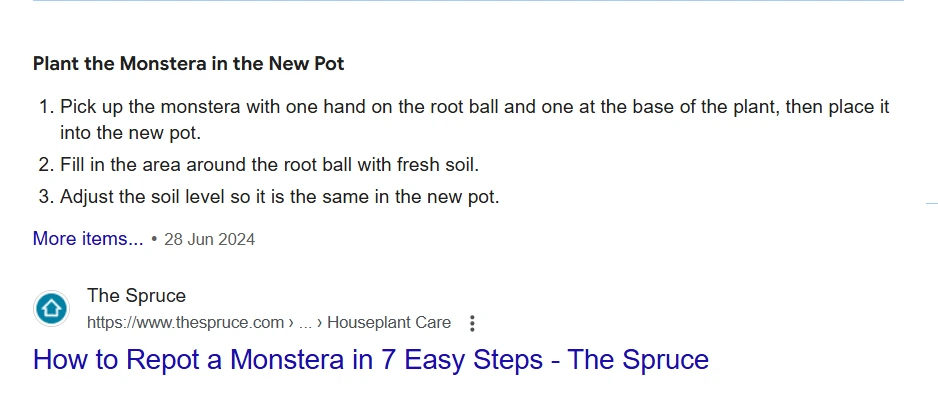
Is SEO Dead? Ways to Dominate Search Engines in 2025
Is SEO Dead? Navigating the Evolution of Search in 2025
The question “Is SEO dead?” has lingered in digital marketing circles for over a decade, resurfacing with every major technological shift—from the rise of mobile browsing to the advent of AI chatbots. While the tactics of yesteryear, like keyword stuffing and spammy backlinks, have faded into obsolescence, search engine optimization itself is far from extinct. Instead, it has matured into a more nuanced discipline, one that prioritizes user intent, authenticity, and adaptability. To understand why SEO remains indispensable—and how to leverage it in 2025—we must examine how search engines have evolved, the growing role of AI, and the strategies that separate successful brands from the noise.
The Resilience of SEO in the Age of AI
Despite the buzz around generative AI tools like ChatGPT and Google’s Search Generative Experience (SGE), search engines remain the cornerstone of online discovery. Consider this: Google processes over 8.5 billion searches daily, a figure that continues to grow as users seek answers to everything from mundane queries to complex problems. While AI chatbots offer convenience, their limitations in accuracy and recency keep users tethered to traditional search. For instance, a 2024 study by Edelman revealed that 72% of users distrust AI for critical topics like medical advice or financial planning, citing concerns about factual errors and outdated information.
This reliance on search engines is particularly evident in industries where trust and precision are paramount. Take the healthcare sector: a user researching “symptoms of iron deficiency” is more likely to click on a Mayo Clinic article ranked on Google than an AI-generated summary, as the former carries the weight of institutional credibility. Similarly, e-commerce thrives on SEO, with 67% of shoppers starting product research via search engines, according to BrightEdge. These trends underscore a fundamental truth: as long as users seek reliable, real-time information, SEO will remain vital.
The New Frontier: Answer Engine Optimization (AEO)
The rise of AI has given birth to a complementary strategy: Answer Engine Optimization (AEO). Unlike traditional SEO, which focuses on ranking for keywords, AEO prioritizes structuring content to directly answer user queries, often securing prime visibility in featured snippets, voice search results, or AI-generated summaries. For example, a search like “how to repot a monstera plant” might trigger a step-by-step guide pulled from a gardening blog, displayed prominently at the top of the results page.

AEO demands a shift in content creation. Instead of lengthy articles, brands must craft concise, structured answers that align with how search engines extract and display information. This means using clear headers (e.g., “Step 1: Prepare the Soil”), integrating schema markup to label FAQs or how-to guides, and anticipating the natural language patterns of voice search queries (e.g., “What’s the best time to water succulents?”). The payoff is significant: Backlinko reports that 50% of voice search answers originate from featured snippets, making AEO a critical tool for capturing the growing voice search market.
The Transformation of Search Results
Google’s results pages have evolved from static lists of links into dynamic, interactive hubs. Features like video carousels, local map packs, and AI-generated summaries now dominate, reshaping how users interact with information. Take the hospitality industry: a search for “best rooftop bars in Chicago” no longer yields just blog posts—it surfaces Instagram Reels of signature cocktails, Google Business Profiles with real-time reviews, and TikTok videos tagged with #ChicagoNightlife. This multimedia integration means brands must diversify their SEO strategies to include video optimization, local listings, and visual content.
Google’s Search Generative Experience (SGE) exemplifies this shift. Rolled out in 2024, SGE uses AI to synthesize answers from multiple sources, presenting them in a conversational format. For instance, a query like “How to start a podcast” might generate a bullet-point summary covering equipment recommendations, hosting platforms, and marketing tips—all sourced from high-authority websites. While this could reduce clicks for basic queries, it creates opportunities for brands that optimize for depth and expertise. A HubSpot study found that 35% of SGE answers cite sources beyond the first page of traditional results, offering smaller brands a chance to compete.
Strategies for Success in Modern SEO
To thrive in this evolving landscape, businesses must adopt a hybrid approach that blends traditional SEO principles with emerging tactics like AEO. Here’s how:
1. Prioritize Search Intent and Depth
Google’s algorithms increasingly prioritize content that matches user intent. For example, a search for “vegan leather handbags” likely indicates commercial intent, with users seeking product comparisons or shopping guides. Conversely, “history of vegan fashion” signals informational intent, warranting an in-depth article on ethical materials. Tools like AnswerThePublic can uncover related questions (e.g., “Is vegan leather durable?”), enabling brands to create comprehensive content that addresses the full spectrum of user needs.

2. Invest in Expertise and Authenticity
Google’s 2024 Helpful Content Update emphasizes E-E-A-T (Expertise, Experience, Authoritativeness, Trustworthiness). A financial advisory firm, for instance, could bolster credibility by publishing whitepapers co-authored with certified planners, citing peer-reviewed studies on investment trends, or updating existing articles to reflect the latest tax laws. This focus on quality over quantity ensures content remains relevant and authoritative.
3. Optimize for Multichannel Visibility
Modern SEO extends beyond written content. A home decor brand might optimize YouTube tutorials for “DIY shelf installation,” embed Instagram Reels in blog posts, and participate in Reddit threads about minimalist design. By diversifying formats and platforms, brands can capture traffic from Google’s video carousels, social integrations, and forum discussions.
4. Leverage Long-Tail Keywords and Local SEO
Highly competitive keywords like “CRM software” are saturated, but long-tail phrases like “CRM for freelance graphic designers” offer untapped potential. Similarly, local SEO remains critical for brick-and-mortar businesses. A bakery in Austin could optimize for “gluten-free birthday cakes downtown” while ensuring its Google Business Profile features updated hours, customer photos, and responses to reviews.
Outdated Practices and the Path Forward
Certain SEO tactics have undeniably met their demise. Keyword stuffing, once a shortcut to rankings, now triggers penalties from Google’s BERT algorithm, which prioritizes natural language. Similarly, private blog networks (PBNs) and spun content have been sidelined by stricter spam filters. In their place, brands must focus on earning backlinks through collaborations with reputable publishers, creating data-driven reports, or hosting industry webinars.
Looking ahead, voice search and AI integration will further shape SEO. Voice queries like “Where’s the nearest EV charging station?” require concise, location-based answers, while tools like ChatGPT can aid in content ideation—provided human editors refine outputs for accuracy and nuance.
SEO’s Evolution, Not Extinction
The narrative of SEO’s death has always been a misdiagnosis. What has perished are the manipulative tactics of the past; what thrives is a discipline centered on user needs, authenticity, and adaptability. As search engines grow smarter, the brands that succeed will be those that view SEO not as a technical checklist but as a commitment to delivering value.
By embracing AEO, optimizing for E-E-A-T, and diversifying content across formats, businesses can secure visibility in an era where AI and human curiosity coexist. The challenge—and opportunity—lies in evolving alongside the algorithms, ensuring that when users ask questions, your brand becomes the answer they trust.
SEO specialist with 11+ years of experience helping businesses rank on the first page of Google. Proven track record in on-page SEO, technical optimization, content strategy, and link building. Trusted by startups and established brands to deliver sustainable search visibility and long-term growth. Always up-to-date with the latest algorithm changes and industry best practices.





